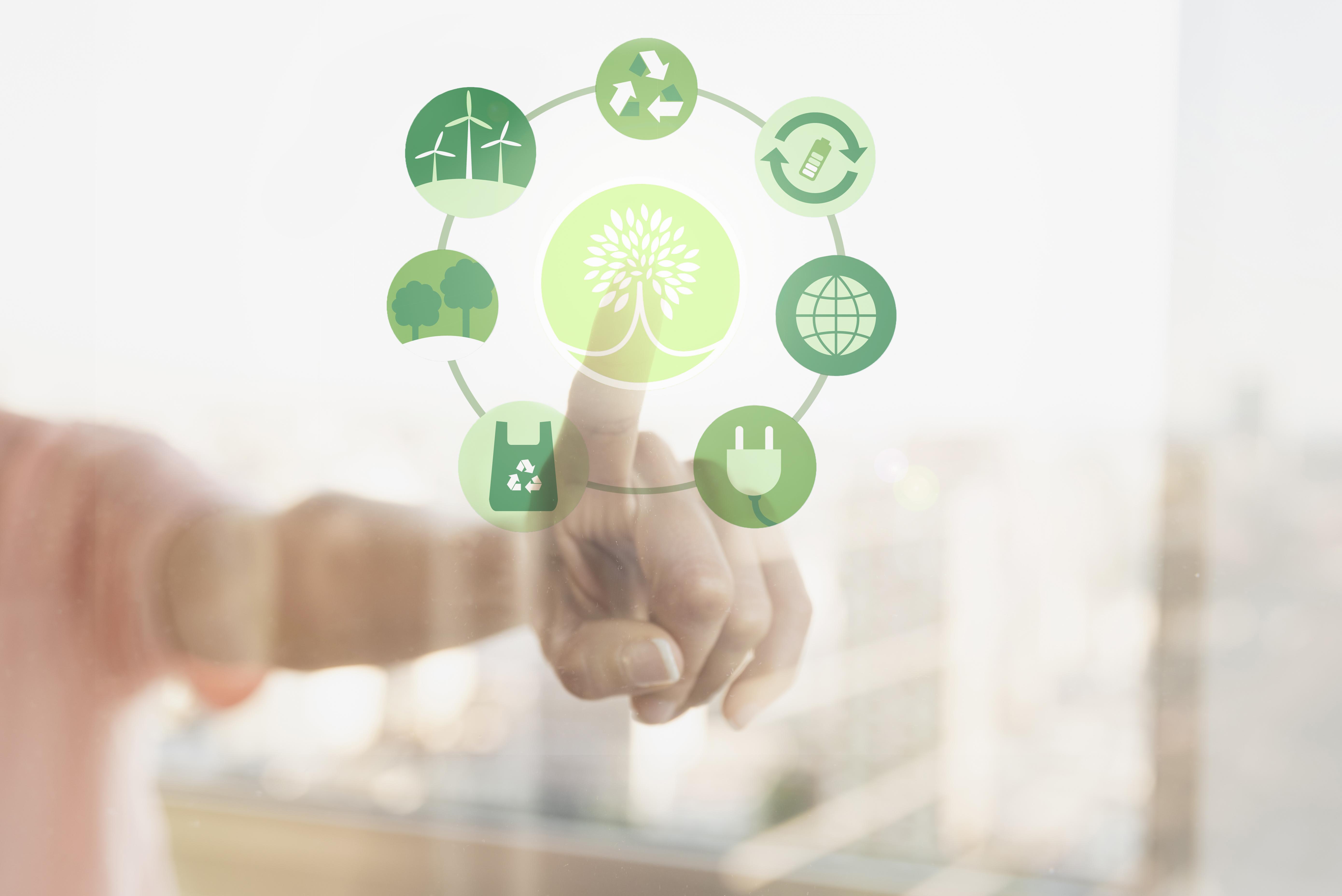Renewable energy (RE) is derived from natural resources that can be naturally replenished. These resources renew over human timescales, making the energy derived from them unlimited and sustainable. Renewable energy contributes to addressing climate and environmental issues by reducing dependence on conventional energy use or fossil fuels. Examples of renewable energy sources include hydropower, solar energy, biomass, tidal waves, and geothermal heat, among others.
Why is Renewable Energy (RE) Needed in the Future?
There are several important reasons why renewable energy is needed in the future for sustainability and the survival of our planet:
- Reducing Greenhouse Gas Emissions: Wind, biomass, solar, water, and other renewable energy sources produce minimal to zero greenhouse gas emissions during the energy production process. Reducing greenhouse gas emissions that contribute to global warming, such as carbon dioxide, by using renewable energy can mitigate the impacts of climate change. This is crucial not only for sustainable production but also for the environmental health of our surroundings.
- Unlimited Availability: Wind and solar energy are natural, unlimited sources that can be continually renewed. These energy sources differ from coal, gas, or oil, as they are not reliant on finite resources.
- Diversification of Energy Supply: Using fossil fuel energy sources can lead to dependency on importing these resources from other countries. By utilizing renewable energy, companies can reduce dependence on limited resources. Diversifying energy supplies can also help mitigate the risks of price fluctuations and energy supply, enhancing energy security.
- Job Creation and Economic Recovery: Building the renewable energy industry can significantly boost economic growth by creating substantial job opportunities. In addition to fostering economic growth, investment in renewable energy can drive innovation.
- Environmental Pollution Reduction: Renewable energy does not produce air pollution or fuel waste that contaminates air, soil, and water. Replacing conventional energy sources with renewable energy can improve air quality and overall environmental conditions.
- Improved Access to Energy: In some remote or isolated regions, renewable energy, such as solar panels and/or wind turbines, can provide better access to electricity. This can help improve education, health, and economic opportunities for communities residing in those areas.
- Sustaining Natural Resources: Unsustainable exploitation of natural resources like coal, gas, or oil can lead to environmental damage and harm the ecosystems within them. Using renewable energy can reduce the risks and problems associated with this exploitation.
Switching from conventional energy use to renewable energy (RE) is a crucial step toward achieving sustainability and addressing future climate change challenges. Through investment, development, and utilization of renewable energy, we can contribute to a more sustainable, cleaner, and, most importantly, a safer future for us all, future generations, and the Earth.
The Importance of Transitioning to Renewable Energy (RE)
As a social responsibility and for various critical reasons for business sustainability, companies need to transition to using renewable energy (RE). Here are some reasons why transitioning to renewable energy is crucial for companies:
- Reducing Environmental Impact: Using renewable energy helps companies reduce negative impacts on the environment. Renewable energy produces little to no greenhouse gas emissions and other pollutants, helping companies reduce their contribution to climate change and environmental pollution.
- Meeting Environmental Regulations and Standards: Many industries and countries have imposed strict regulations regarding greenhouse gas emissions and environmental protection. Companies can comply with these regulations and standards, avoiding fines and legal sanctions by using renewable energy. Moreover, compliance with regulations and environmental responsibility helps maintain the company’s reputation.
- Resource Sustainability: Wind and solar are natural, renewable energy resources. Companies can secure a long-term energy supply by using renewable energy. Additionally, companies can reduce dependence on conventional resources like fossil fuels, which are becoming scarcer, limited, and more expensive.
- Diversification of Energy Supply: Companies can reduce the risks of price fluctuations and energy supply by relying on renewable energy. Using different energy resources can also help companies enhance energy security and resilience.
- Corporate Social Responsibility (CSR): In the face of climate change challenges, transitioning to renewable energy and contributing to sustainable development is part of the company’s social responsibility. This demonstrates the company’s commitment to environmentally and socially responsible business activities.
- Competitive Advantage and Reputation: Renewable energy, increasingly sought after by many companies, gives those who quickly transition and adopt renewable energy a competitive edge. Sustainability-oriented customers and business partners are attracted to companies with a reputation for using renewable and environmentally friendly energy, showcasing innovation.
- Energy Efficiency and Cost Savings: In some cases, renewable energy can be a more efficient and cost-effective choice in the long run. Besides improving energy use efficiency, companies using renewable energy can save on operational costs.
Transitioning to renewable energy (RE) is not only about meeting regulatory requirements or following global trends; it’s also about ensuring business continuity and playing an active role in global efforts to protect the environment and achieve sustainability. Using renewable energy is a strategic step that can provide long-term benefits for companies, society, and the Earth as a whole.
For more information about consulting services and the Oil, Gas, and Geothermal Mining Sector, you can read our article here. If you and your company need further information regarding our services, please contact and consult with us here.






